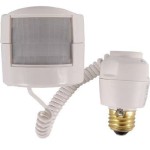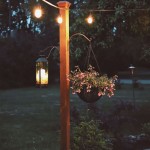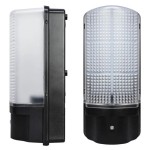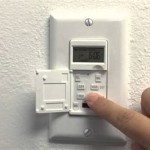Low Voltage vs. High Voltage Outdoor Lighting: Choosing the Right Solution
When illuminating your outdoor spaces, choosing the right lighting system is crucial. Two main options exist: low voltage and high voltage. Each comes with its own set of advantages and disadvantages, impacting factors like cost, safety, and aesthetics. Understanding these differences can help you make an informed decision for your needs.
Low Voltage Lighting: Advantages and Disadvantages
Low voltage lighting systems operate on a lower electrical current, typically 12 volts. This reduction in voltage offers several benefits:
- Safety: The reduced voltage significantly lowers the risk of electric shock, making it safer for both people and pets. This is especially important in areas where children play.
- Flexibility: Low voltage systems are easier to install and modify. Wires are thinner and easier to run through walls or under landscaping, allowing for greater flexibility in placement and design.
- Energy Efficiency: The lower voltage often translates to lower energy consumption compared to high voltage systems, especially with LED fixtures.
- Wide Variety of Fixtures: Low voltage systems offer a wide range of aesthetically pleasing fixtures, including path lights, spotlights, and landscape accents.
However, low voltage systems also have some drawbacks:
- Transformer Required: A transformer is necessary to step down the standard voltage (120 volts) to the lower voltage required for the system. This adds to the initial cost and requires space for installation.
- Limited Range: Due to the reduced voltage, the distance the electricity can travel is limited. This may require multiple transformers for larger areas.
- Lower Light Output: Some low voltage fixtures might have a lower light output compared to high voltage fixtures with similar wattage. This can be a factor when illuminating large areas.
High Voltage Lighting: Advantages and Disadvantages
High voltage lighting systems operate on the standard 120 volts. This offers a different set of advantages and disadvantages:
- Higher Light Output: High voltage systems can provide brighter illumination, making them suitable for larger areas or when greater light intensity is required.
- Longer Range: The higher voltage enables electricity to travel further, reducing the need for multiple transformers and allowing for wider coverage.
- Simpler Installation: No transformer is required, simplifying the installation process and potentially making it more cost-effective.
However, high voltage systems also have downsides:
- Safety Concerns: The higher voltage poses a greater risk of electric shock, requiring careful installation and maintenance. This is especially important in areas with high foot traffic or where children may be present.
- Limited Flexibility: Thicker wires and the lack of flexibility in placement can make installation more challenging, especially in existing landscapes.
- Less Energy Efficient: Compared to low voltage systems with LED fixtures, high voltage systems generally consume more energy, leading to higher operating costs.
Choosing the Right System
Ultimately, the best choice between low voltage and high voltage lighting depends on your specific needs and priorities. Consider the following factors:
- Budget: Low voltage systems tend to be more expensive initially due to the transformer, but may save money in the long run due to energy efficiency. High voltage systems have lower upfront costs but may lead to higher energy bills.
- Safety: Low voltage systems offer greater safety due to the reduced voltage. If children or pets are present, this might be a more suitable option.
- Aesthetics: Low voltage systems offer a wider variety of fixtures and greater flexibility in placement, allowing for more creative and personalized designs.
- Size and Illumination Requirements: High voltage systems can provide brighter illumination and cover larger areas. If you need to illuminate a large space or require a high light output, this might be the better choice.
It's recommended to consult with a qualified electrician or lighting specialist to discuss your specific requirements and receive professional advice on which system is best for your outdoor lighting project.

High Voltage Vs Low Landscape Lighting

Low Voltage Vs High Landscape Lighting What You Need To Know Villaneri

High Voltage Vs Low Landscape Lighting Premier Of Md

High Voltage Vs Low Outdoor Lighting

Low Voltage High Impact 1000bulbs Blog

Lighting Overview Low Voltage Vs High Nite Time Decor

Solar Halogen Or Led Lights Which Is Right For Your Naples Space

Low Voltage Vs High Landscape Lighting

Tips For Designing The Perfect Outdoor Lighting

Outdoor Lighting Ideas Vancouver Electrician Wirechief Electric S Blog
Related Posts







